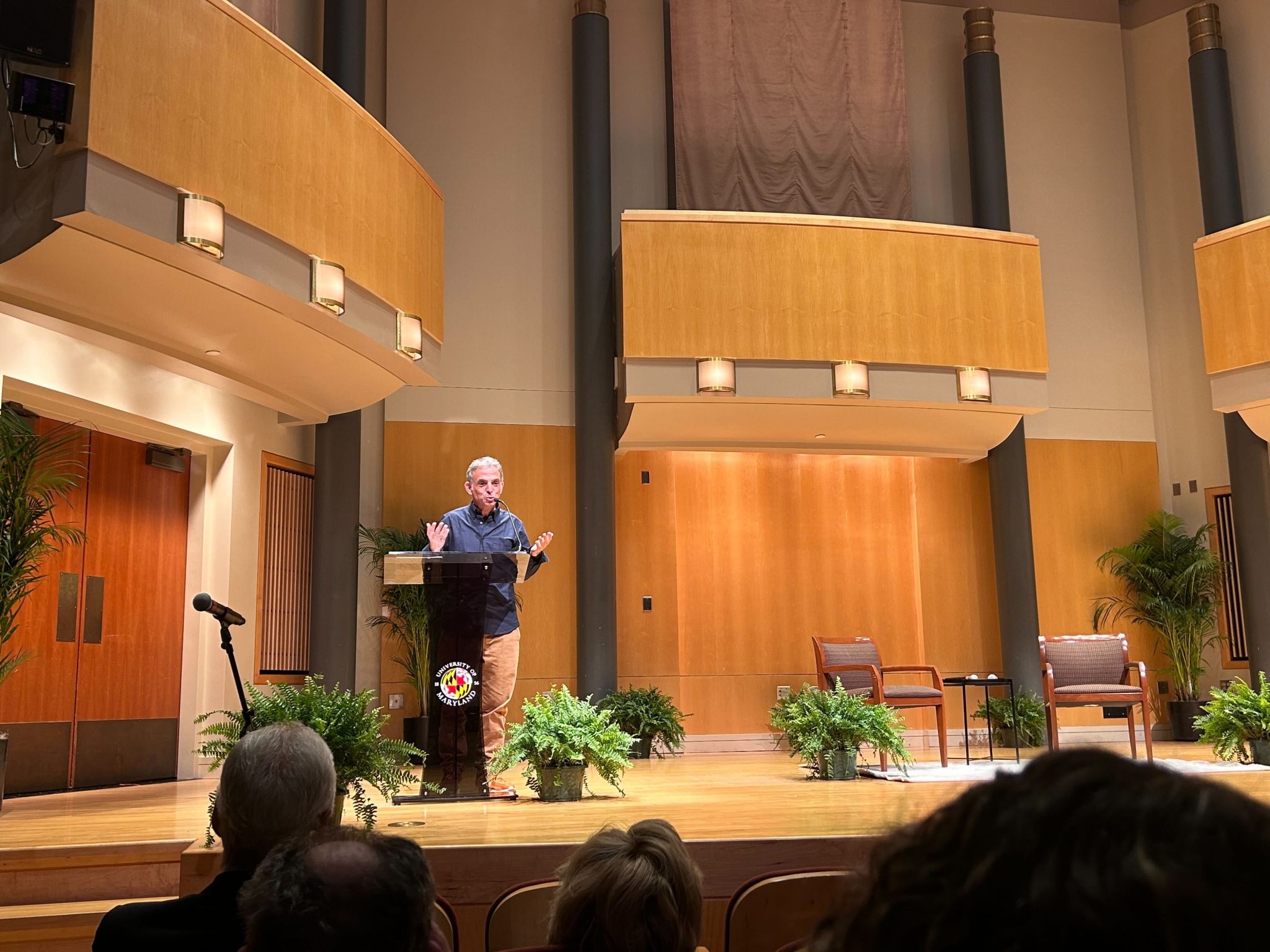By Mayah Nachman
For The Diamondback
Award-winning Israeli author Etgar Keret evoked a mix of tears and laughter from University of Maryland community members Monday evening during this university’s annual Dubin Family Lecture.
The lecture — hosted at The Clarice Smith Performing Arts Center — featured Keret, an influential writer and filmmaker known for his short stories. The event was hosted by this university’s Joseph and Alma Gildenhorn Institute for Israel Studies, arts and humanities college and Arts for All initiative.
Keret’s short stories feature unique perspectives that are both dark and humorous, according to the Joseph and Rebecca Meyerhoff Center for Jewish Studies. Keret, whose works have been translated into more than 45 languages, spoke to a crowd of about 150 attendees about his experience growing up in Israel from the viewpoint of a writer.
According to Ilai Saltzman, the institute’s director, this year’s event was unique by featuring a literary writer rather than a political figure.
“I knew that [Keret] can bring this voice, this particular voice of compassion and empathy that oftentimes, we find missing in the conversations that we have about the situation and conflict in Gaza,” Saltzman told The Diamondback.
[UMD welcomes refugee student with new national program]
The event began with an introduction by Saltzman and a speech from university president Darryll Pines. Alma Gildenhorn also held a tribute to the memory of her husband, Joseph Gildenhorn, during the event.
In his speech, Pines highlighted the importance of this university’s Israel studies program and events such as the Dubin lecture.
“Today’s event exemplifies the Gildenhorn Institute’s mission to host open dialogue and help our students understand Israel and its people,” Pines said.
During Monday’s lecture, Keret discussed the role of storytelling throughout his life as the son of Holocaust survivors and as an Israeli citizen. Keret’s parents used storytelling to withstand hardship and tragedy, he said.
“In our home, it was always obvious for me, even though it wasn’t articulated, that storytelling and imagination were not accessories or luxuries,” Keret told the audience. “They were a means of survival, that you need to know how to tell a story, you need to imagine because if you won’t, you’re doomed.”
[Maryland Hillel breaks ground on new, larger facility]
Keret also described how many Israelis felt a need to help those impacted by Hamas’ Oct. 7, 2023 attack on Israel. Keret has been sending weekly fictional stories to people impacted by the attack, he said.
During its 2023 attack, Hamas killed at least 1,200 people in Israel and took about 250 hostages, according to the Associated Press. Since then, Israel’s military forces have killed more than 41,000 people in Gaza, the Associated Press reported Monday.
Hamas is still holding about 100 people hostage, according to the Associated Press, with a third believed to be dead.
Since Oct. 7, Keret has found himself writing less fiction and more op-ed and nonfiction pieces, he told The Diamondback. Keret said he often receives criticism from these pieces because of the more nuanced topics he addresses.
Keret has also been asked to speak at more events centered around Jewish and Israeli culture rather than at events focusing on the arts and creative writing, he said.
For some audience members, Keret’s lecture provided them with a new perspective and made them more interested in his work.
Freshman government and politics major Devorah Hershenson was especially impressed by Keret’s relationship with his mother and how she inspired him to become a storyteller, Hershenson said.
“I basically was coming in completely blind, but I really enjoyed [it],” Hershenson said. “He was very captivating.”



